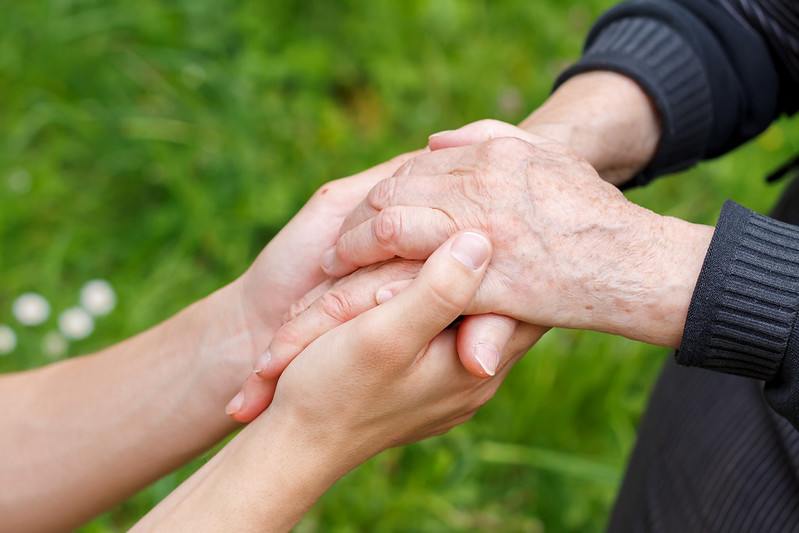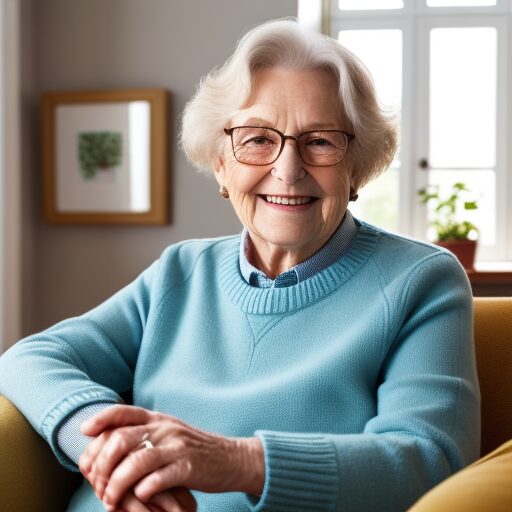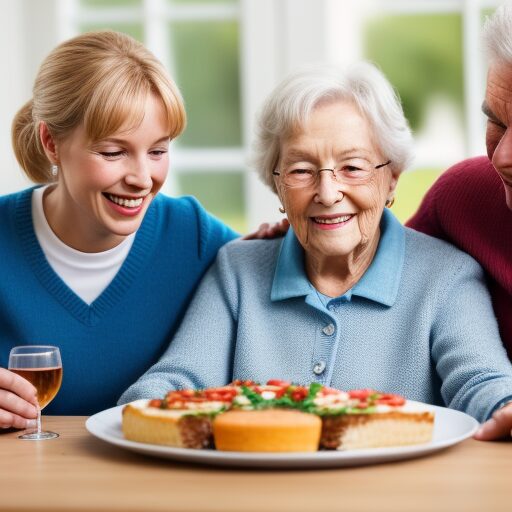Taking care of mental health is crucial at every stage of life, especially for older adults. While aging brings challenges, understanding mental health nuances becomes vital. As we age, life changes might affect the mental health of the elderly. Some adjust well, but others may feel grief, social isolation, or loneliness.
If these feelings hang on, they can lead to various system mental disorders. However, effective treatment options, including elderly counseling, can help you support your loved ones at every stage of life.
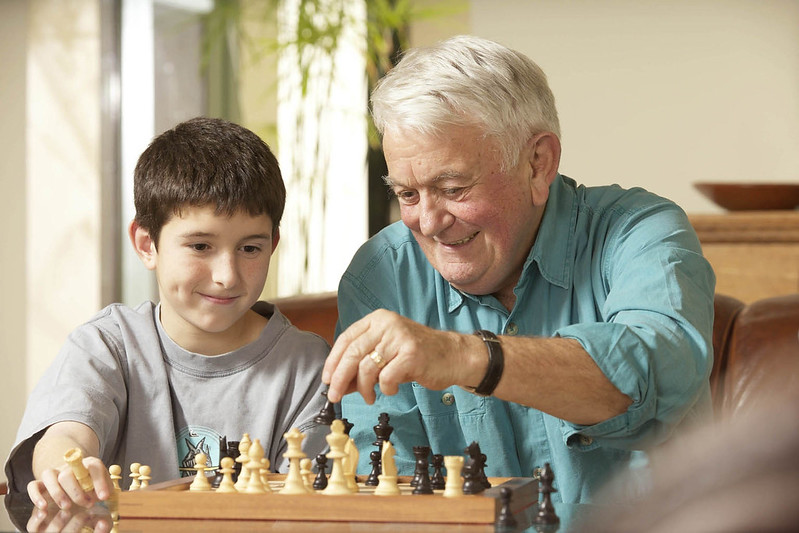
Old Age Mental Health / Flickr / Stannah International
Older people play an essential role in families and communities. Many of them work as volunteers or workers. While most are healthy, some may face system mental illnesses like depression or anxiety. In addition, some also fight with physical issues like limited mobility, chronic pain, or memory problems, needing long-term care.
Below, we will discuss the many aspects of the mental health of the elderly. We will also discuss the seriousness of mental disorders as people age and how elderly counseling can help. It’s not just about personal well-being; the mental health of older adults also has broader effects on society.
To grasp this, we must understand all the factors affecting mental health in later life. By doing so, we want to spread awareness and support a complete approach to elderly care that values mental and physical health.
Contents
Why is Geriatric Mental Health Important?
Ensuring the mental health of the elderly is vital for their well-being and quality of life. Beyond personal perks, it also holds value for mental health professionals and the broader community. Here are a few reasons why geriatric mental health is crucial:
Quality of Life
Good mental health enhances older adults’ overall quality of life. It lets your loved ones enjoy their later years with a positive outlook. They can engage in activities they love and maintain fulfilling relationships.
Promotes Mental and Physical Health
Mental and physical health are linked together. System mental disorders can trigger many physical health issues. For example, it may lead to heart issues, a weaker immune system, and a poor recovery from sickness.
Thus, understanding the link between mental and physical health is crucial. When you care for old-age mental health, you also care for the whole person. This isn’t just about feeling good emotionally and ensuring your dear ones are strong and resilient.
Independence and Functionality

Old Age Mental Health / Flickr / Marc Barrot
Good mental health care for your older loved ones helps them stay on top of things and be independent. It helps them to remain independent and functional.
In addition, it also promotes decision-making and problem-solving so your loved ones can handle routine tasks. It is like giving them the support they need to do what they want on their own.
By looking out for their mental well-being, you help them stay independent and enjoy life just how they want.
Fosters Social Interactions
Have you ever thought about how good mental health can make a real difference in the social lives of our elders? It’s pretty cool! Older adults with robust mental health are more likely to participate in social activities. This means more connections with friends, family, and the community.
Moreover, social engagement becomes a powerful tool against loneliness. It creates a sense of belonging that adds so much richness to lives. So, not only does it make them feel good, but it is also the door to a vibrant social life that keeps them connected and happy.
Reduces the Burden on Health Care Providers
The poor mental health of the elderly also adds extra stress for their caretakers. However, focusing on senior mental health can lighten the load for family members and healthcare providers.
You can take steps to support your loved ones’ mental well-being. It also makes things easier for those who care for them.
As a result, you create a healthier and more balanced environment for older adults and those who care for them.
Preventing and Managing Mental Disorders
Older people’s mental health needs proactive care. It helps to prevent mental disorders such as depression, anxiety, and dementia. Getting help at the right time becomes even more essential if your loved one is already dealing with system mental disorders.
It can help you to keep your elderly’s mental health in the best shape possible. That way, you are helping older adults today and setting them up for a better tomorrow.
Societal Well-Being
The solid mental health of older people adds to everyone’s happiness. If your loved one feels mentally sound, they are more likely to indulge in community activities. They would love to share their experiences and add to the group’s wisdom.
It means everyone benefits when older adults are feeling their best mentally. Their positivity and experiences become a valuable part of our collective well-being. Thus, the good mental health of our seniors not only helps them but also creates a happier and more vibrant community for everyone.
Video Credit: DocSnipes
Common System Mental Disorders in the Elderly
As we age, we are more vulnerable to a plethora of mental health conditions. Here are some common mental health issues in seniors:
Depression
Depression is one of the most common system mental disorders among seniors, impacting one in four older individuals. Despite being a widespread concern, it is shocking that fewer than one in six seek help. Even in care homes, around four in ten residents wrestle with depression.
Knowing common depressive symptoms is critical to helping your elderly loved ones. For example, feeling sad, grief, guilt, or an inability to find joy in things are a few signs of depression.
Moreover, remember that depression is not an inevitable part of aging. Support is available, regardless of age or the duration of your feelings. Simple steps like seeing help from your doctor and elderly counseling can protect your loved ones from depression.
Dementia
Dementia is another standard system mental illness in older adults. The condition declines the cognitive abilities of older adults. It affects memory, thinking, problem-solving, concentration, and perception.
However, you should note that dementia is not a specific disease. Instead, it is a term for impaired abilities that affect daily life. Alzheimer’s disease, for example, is the most common type that falls under dementia. Although more common in seniors, dementia is not a normal part of aging.
Even though there’s no cure for dementia, there are treatments to help people live well with it. In addition, a healthy lifestyle, regular exercise, elderly counseling, and eating well can also lower the risk of dementia.
Bipolar Disorder
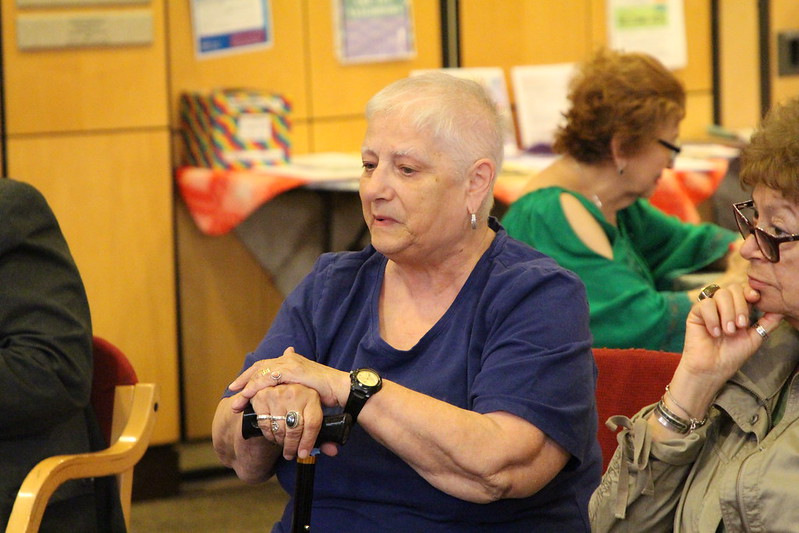
Elderly Counseling Can Improve Mental Health / Flickr / Ruben Diaz Jr.
Late-onset bipolar can be hard to identify due to its similarities with dementia. The condition has symptoms like manic behavior, confusion, hyperactivity, psychosis, and agitation. In addition, some individuals also experience cognitive issues like memory problems and loss of judgment.
These symptoms are common in older adults, making it tricky to diagnose. Thus, it needs careful observation by healthcare professionals. Getting the correct diagnosis is vital for proper treatment for those with late-onset bipolar disorder. It ensures their well-being and mental health as they age.
Anxiety Disorders
Like depression, anxiety is one of the most common concerns for the mental health of the elderly. As per research, about half of older adults with anxiety also fight with depression.
Various factors, including sleeping problems, poor health, and medical side effects, can trigger the condition. In addition, alcohol or drug use, physical impairments, stress, and trauma can also cause anxiety disorder.
General anxiety disorder involves constant worry or fear that worsens over time. Symptoms include excessive worry, nervousness, chronic fatigue, irritability, and poor sleep quality. These symptoms can impact socializing, work, and daily activities.
Seeking medical or emotional support or getting elderly counseling can help prevent the worsening of this condition.
Substance Abuse Disorders
Substance use disorder is yet another common worry for the mental health of older people. Sadly, many often overlook it or do not take it seriously. Factors like feeling alone, retiring, or chronic health issues can trigger the problem.
Older adults may turn to substances to cope with emotional struggles. It’s tough to find SUD because the signs are similar to other health problems.
Managing SUD in older adults comes with its problems, including the fear of stigma and loss of independence. The severe results can affect physical health, thinking, and quality of life.
Treating the issue involves some crucial steps. First, ensure your loved one’s basic needs, like food and shelter. Second, provide support to help them understand safer ways to use substances.
Moreover, Focus on what would enhance their quality of life, matching their personal goals. This approach handles practical needs and well-being, creating a more effective and considerate treatment strategy.
Furthermore, elderly counseling can also help older adults dealing with substance use. The counselors create a safe and private space for seniors, letting them share their feelings. They work together to figure out why someone might be using substances and find better ways to deal with problems.
In these sessions, they talk about the challenges older adults face. The goal is to help them find healthier ways to cope with stress and emotions so they don’t rely on substances.
In addition, counseling also improves communication between the person, their family, and doctors. It’s like a team effort to make sure the treatment plan considers everything.
Wrapping Up: Mental Health Support for the Elderly
Prioritizing the mental health of the elderly is vital for a dignified later life. Your elderly loved ones may face challenges like social isolation, depression, and stigma. They need comprehensive support to live well with it all.
Realizing the importance of mental well-being paves the way for a healthier aging process. It helps seniors maintain their independence and contribute to their communities. We must also invest in accessible resources tailored to the needs of seniors.
Moreover, fostering a culture that values open conversations about mental health is vital. As we advocate for the physical health of seniors, parallel attention to their mental well-being becomes equally essential.
A society that acknowledges and addresses the mental health needs of its elderly enables a more kind and inclusive environment for all ages.
FAQs
Does aging cause mental health problems?
Aging itself doesn’t directly cause mental health problems. However, it is associated with factors that may increase the risk of such issues in older adults. Physical conditions, including chronic illnesses, can have implications for mental well-being. In addition, the challenges of coping with grief or meaningful life changes can also cause mental health problems. Moreover, social factors can also affect the mental health of the elderly. These include social isolation, limited social activities, and the loss of friends or family members. It is important to note that mental health illnesses are not an inherent aspect of aging. Proactive mental health care and a supportive social environment can reduce mental health problems.
What are the common signs of a mental disorder in seniors?
Sometimes, older people might show signs that their mind isn’t feeling well. They might feel sad, forget things, or not want to spend time with others. Changes in how they sleep or eat can happen, too. It could be a sign if they start losing interest in something they used to enjoy or have a hard time focusing. Moreover, they might complain about their body hurting without an apparent reason. Not taking care of themselves, like not showering, is another sign. If you notice these things sticking around or getting worse, it’s a good idea to see your doctor or someone who can help with mental health.
What mental health services do seniors need?
Older adults benefit from various mental health services designed to meet their needs. For example, getting elderly counseling offers emotional support. These services help seniors manage life changes, grief, and mental health concerns. Moreover, psychiatric services assess and manage medications for conditions like depression or anxiety. Memory care programs cater to those dealing with cognitive issues. In-home mental health services bring professionals to seniors facing mobility issues, while telehealth services offer remote access. In addition, educational programs inform both seniors and caregivers about mental health. Regular check-ups and screenings ensure early detection and prevention. These tailored services contribute to seniors’ well-being and quality of life.
How does elderly counseling help seniors improve their mental health?
Elderly counseling is vital for seniors. It is like a helpful conversation that can make them feel better. Seniors have a safe space to share their feelings and get the support they need for good mental health.
Moreover, counseling also helps seniors deal with significant life changes. These include retirement, grief, guilt, or an inability to find joy in things. If there is a mental health illness, counseling can identify and tackle it early.
Elderly counseling teaches seniors better ways to talk with their family and friends, strengthening their support system. In simple terms, elderly counseling is a positive resource for seniors, guiding them through the ups and downs.
Welcome to Senior Parents!
Explore a wealth of wisdom and care for your senior loved ones at Senior Parents! Our website guides all things aging life – from health tips to creating moments of joy.
Join our community dedicated to supporting one another through the unique senior care journey.
Dive into articles, insights, and resources tailored for you and your seniors. Uncover secrets to fostering happiness, maintaining health, and building strong connections in the golden years.
Visit Senior Parents today and embark on a journey of care, love, and joy together!
Take advantage of our updates! Join our social media community for even more insights and discussions.
Facebook: www.facebook.com/sr.parents
Insta: www.instagram.com/seniorparents
Pinterest: www.pinterest.com/seniorparents
Twitter: twitter.com/senior_parents
You Might Also Like the Following

